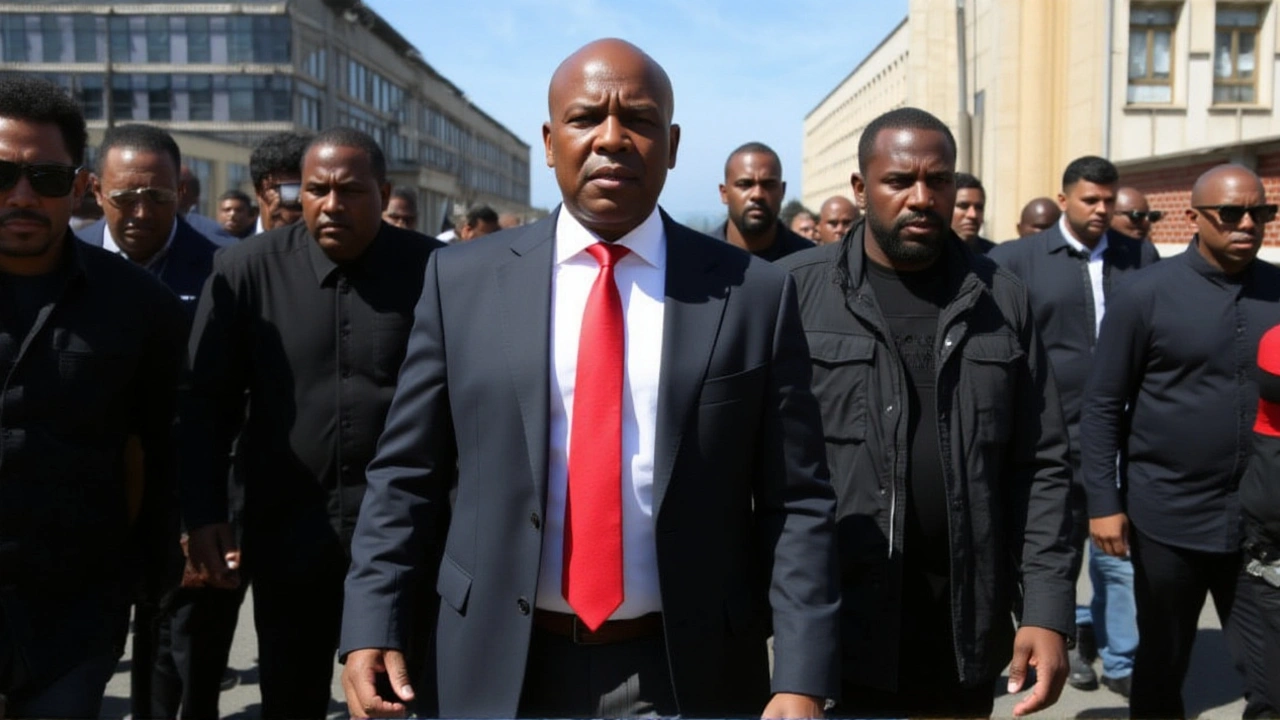Economic Freedom Fighters – South Africa’s Bold Opposition Force
When talking about Economic Freedom Fighters, a left‑leaning, pan‑Africanist party founded in 2013 that champions land expropriation without compensation and radical economic change. Also known as EFF, it quickly became a vocal challenger to the ruling party. The movement is driven by charismatic leader Julius Malema, the former ANC Youth League president who now heads the EFF with a focus on wealth redistribution. Its core agenda includes Land Expropriation, the policy of taking private farmland for public use to address historic injustices, a topic that dominates South African parliamentary debates.
Why the EFF matters today
The African National Congress, South Africa’s long‑standing governing party has ruled since 1994, but growing economic frustration has opened space for the EFF’s message. The party’s strategy combines street protests, dramatic parliamentary speeches, and a strong social media presence, which together create a pressure cooker for policy change. This dynamic illustrates the semantic triple: Economic Freedom Fighters challenges African National Congress, Economic Freedom Fighters pushes Land Expropriation, and Julius Malema leads Economic Freedom Fighters.
Understanding the EFF requires a quick look at its attributes. Entity: Economic Freedom Fighters; Attributes: ideology (radical left, pan‑Africanism), formation year (2013), primary goals (land reform, nationalization of key industries). Values: ideology = anti‑capitalist, formation year = 2013, goals = land expropriation, wealth redistribution. These facts help readers see how the party fits into the broader South African political landscape.
Beyond the big picture, the EFF’s influence reaches everyday South Africans. Its youth‑focused campaigns appeal to voters under 35, who feel left out of the post‑apartheid economic boom. By sponsoring free transportation and community projects, the party builds a grassroots base that directly competes with the Democratic Alliance’s liberal market approach. This relationship forms another semantic triple: Economic Freedom Fighters targets youth voters, Democratic Alliance attracts middle‑class voters, both vie for control of South Africa’s future.
Policy‑wise, the EFF’s push for land reform is tied to economic empowerment. The party argues that redistributing land will boost agricultural output, create jobs, and close the wealth gap. Critics claim it could scare investors, but the EFF counters with data from pilot programs showing increased productivity when farms are collectively managed. This illustrates a third semantic connection: Land Expropriation impacts economic growth, Economic Freedom Fighters shapes land policy, South African economy responds.
In Parliament, the EFF’s presence is felt in heated debates. Their deputies often interrupt sessions to spotlight corruption, forcing the ANC to address issues it might otherwise sideline. This tactic has sparked a broader discussion about parliamentary decorum versus accountability. The resulting semantic triple reads: Economic Freedom Fighters disrupts parliamentary proceedings, African National Congress defends procedural norms, South African citizens demand transparency.
Internationally, the EFF’s stance on anti‑imperialism resonates with other African movements. Partnerships with parties in Zimbabwe and Kenya create a trans‑national network advocating for resource sovereignty. This cross‑border alliance underscores another connection: Economic Freedom Fighters collaborates with African liberation groups, shared ideology strengthens regional solidarity, global investors monitor policy shifts.
For anyone following South African news, the EFF offers a lens to interpret current events—from protest rallies in Johannesburg to legislative votes on land bills. Below you’ll find a curated set of articles that unpack the party’s actions, the reactions they trigger, and the broader impact on the nation’s political fabric. Dive in to see how Economic Freedom Fighters continues to reshape the conversation and what that means for the country’s future.

Julius Malema convicted, faces 15‑year prison term and parliamentary ban
Oct 3, 2025 / 18 Comments
Julius Malema, EFF leader, was convicted on Oct 1 2025 of firearm offenses, faces a minimum 15‑year term and an automatic parliamentary ban under South Africa’s Constitution.
READ MORERECENT POSTS
- Nicole Kidman's Insights on Intense Filming of Sensual 'Babygirl' Scenes
- Fulham vs Brentford: Where to Watch Live Premier League Showdown
- Jannik Sinner Overhauls Game After US Open Loss to Alcaraz
- Cristiano Ronaldo Advocates for Kevin De Bruyne Move to Al-Nassr Amid Contract Expiry
- Sunderland Stuns Newcastle 1-0 in Tyne-Wear Derby on Own Goal
